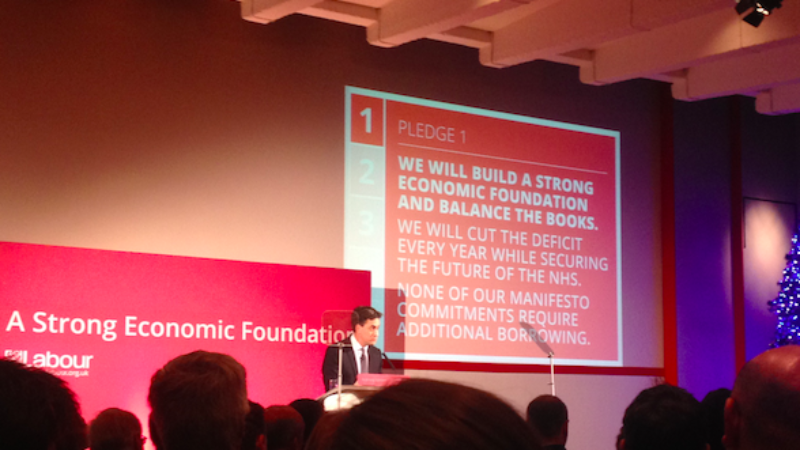
The economy regularly polls highly as one of the most important topics of this election, but talking about “the economy” as an issue is a bit vague. What are people thinking of when someone mentions the economy? Growth? Jobs? The cost of living? The deficit?
When ComRes asked about election issues a few weeks ago, they split up “the economy” into some its component parts. They found the cost of living scored 25%, promoting economic growth 20%, reducing inequality 20%, and reducing the deficit 19%.
This tells us that while deficit reduction is still important to people – it ranks sixth, ahead of issues like housing, crime and education – it will not be the election-defining cause of this election, in a way that it arguably became five years ago.
We can probably assume that this is backed up by the party’s own private polling; I’m not sure George Osborne would have allowed Cameron the £7 billion tax cut pledge in his conference speech otherwise.
Perhaps, then, we shouldn’t be too concerned that the YouGov polling in the Times Red Box today (£) shows people don’t know how Labour intend to cut the deficit. The first set of bars below shows the amount of people who think the parties are clear about their deficit reduction plans, the second set who think they are unclear: (click to enlarge)
Labour are committed to clearing the UK’s deficit as soon as possible within the next parliament, in order to run a budget surplus and start chipping away at that national debt. In fact, that is the party’s number one election pledge. Over the coming weeks, as the zero-based spending review comes to its conclusion, we should have a better idea of where the cuts and tax rises will land.
But cuts and tax rises are not popular, and there are plenty more Labour-friendly areas with greater scope for populist measures that rank higher than the deficit as a concern for voters. Would it be folly for Labour to concentrate on this before the election?
In the short-term, the answer may be yes. It may not be worthwhile to harp on about a topic that people have lost interest in. Laying out detailed a plan to deal with the deficit now is unlikely to be the thing that lands Ed Miliband in Number 10.
Yet, as I said, Labour are committed to clearing the deficit. It is something that will happen if Labour come to power, because those in the shadow treasury team recognise what a burden the debt repayments are. Not only it is now only correct for the party to lay out specifics of how they seek to achieve this, because voters ought to know what they are voting for, but failure to do so could lead to much greater problems with voters: accusations of misleading the electorate are hard to shake off. If Labour don’t make clear what areas will see cuts before polling day, 2020 will be an even tougher election.





More from LabourList
‘Help shape the next stage of Labour’s national renewal through the 2026 NPF consultation’
‘AI regulation is key to Labour’s climate credibility’
Ben Cooper column: ‘Labour needs to rediscover its own authentic populism’